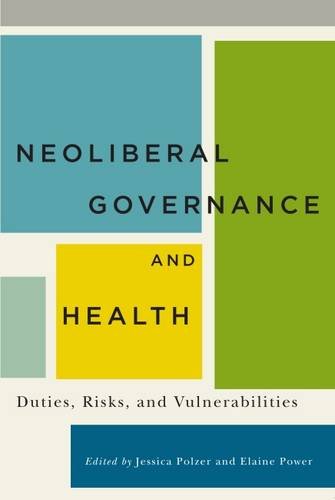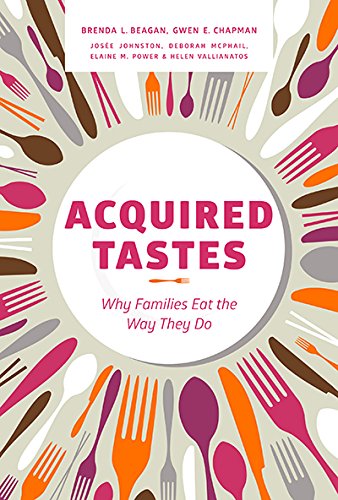
Media
B.I.G. Webinar
Let's Talk BIG - A Basic Income Guarantee for All was lead by Elaine Power, Ph.D. in Fenelon Falls on September 21, 2016.
CBC Radio 1, Up North with Jason Turnbull, February 27, 2017Radio/Podcast
URL: http://www.cbc.ca/listen/shows/up-north/segment/11836579
Ontario is looking to get rid of welfare payments and instead give people a basic income. We spoke with Elaine Power, an associate professor at Queen's University, who is speaking at a public forum about the benefits of basic income in Thunder Bay.
CBC Radio 1, All in a Day, January 9, 2017Radio/Podcast
Dr. Elaine Power, Associate Professor in the School of Kinesiology and Health Studies discuses basic income guarantee with Alan Neal, host of All in a Day, CBC News on 09 Jan 2017. Ontario wants to experiment with universal basic income later this year. And provincial officials stop by Kingston this evening to get ideas for how the poverty relief plan could work.
It's time to close Canada's food banks
The Globe and Mail, July 25, 2011Print
URL: http://www.theglobeandmail.com/opinion/its-time-to-close-canadas-food-banks/article587889/
An argument for why food banks have inadvertently become a problem in ending hunger in Canada.
The province’s basic income pilot project and income security review are promising, but the need to increase social assistance rates is urgent
Policy Options, September 9, 2016Online
The province of Ontario promises social assistance reform and a basic income pilot. But in the meantime, social assistance rates are too low to meet basic human needs. The need to increase social assistance rates is urgent. It is time to increase social assistance rates, to improve the health and well-being of the poorest people in the province, and for the common good of all Ontarians.
Health 101 Basics: A community wake-up call
The Kingston Whig-Standard, January 8, 2014Online
URL: http://www.thewhig.com/2014/01/08/health-101-basics-a-community-wake-up-call
Poverty is bad for our health. To dramatically improve the health of Canadians, eliminate poverty. This would have a bigger impact on health than finding a cure for cancer or getting rid of heart disease. Why don't our politicians act?
Food insecurity and the promise of a basic income guarantee
Leaders & Legacies, February 14, 2016Online
An overview of the causes and consequences of food insecurity, and how an adequate basic income could help, reducing stress and increasing dignity for low-income families and saving health care dollars in the process.
Corporate tax breaks are not the answer to hunger in Canada
The Toronto Star, December 19, 2012Online
Giving a tax break to food corporations who donate surplus food to food banks will do nothing to solve Canada's hunger problem. What we really need is a rebuilt social safety net that ensures income security. We need jobs that provide a living wage and adequate income supports so that all Canadians can purchase the foods of their choice and live in dignity — not dependency. A tax incentive for food corporations will further entrench a response to hunger that is demonstrably ineffective.
Basic income could end food insecurity
Upstream, March 29, 2016Online
URL: http://www.thinkupstream.net/basic_income_food
As part of a progressive package of social supports including programs like pharmacare and affordable housing, an effective basic income guarantee really could eliminate poverty. In doing so it would also eliminate food insecurity and a host of other social determinants of stress, poor health, suffering and premature death. Some of us believe there is a strong moral and ethical imperative for us to look after each other. There is also a strong economic case. We know that for every dollar we invest in reducing poverty, eventually we will save about two dollars — in health care, education and the justice system.
Basic income guarantee would lessen poverty
The Kingston Whig-StandardOnline
URL: http://www.thewhig.com/2015/06/11/basic-income-guarantee-would-lessen-poverty
Food drives to fill the shelves at food banks are well-intentioned. But charity cannot solve hunger because it does not address the underlying problem — poverty. What we need is a basic income guarantee that would ensure that everyone has enough money to buy the food they need. Once there are no more hungry Canadians, food banks could finally close.

Neoliberal Governance and Health: Duties, Risks, and Vulnerabilities
by Jessica Polzer, Elaine Power
McGill-Queen's University Press
773547835
Provoking urgent questions about the politics of health in the twenty-first century, this collection interrogates how neoliberal approaches to governance frame health and risk in ways that promote individual responsibility and the implications of such framings for the well-being of the collective. The essays examine a range of important issues, including childhood obesity, genetic testing, HPV vaccination, Aboriginal health, pandemic preparedness, environmental health, disability policy, aging, contingent work, and women’s access to social services. With specific attention to the Canadian context, contributors reveal how neoliberal practices and policies shape the health experiences of individuals, disadvantaged groups, and communities by cultivating self-discipline while further exposing to harm the lives and bodies of those already marginalized in consumer society. Building on the theoretical conceptualizations of power and government of French philosopher Michel Foucault, the case studies extend our understanding of the effects of neoliberal practices and policies in relation to social class, gender, racialized identity, colonization, and ability, and provide insight into how health-related discourse creates new requirements for citizenship and forms of social stratification. A timely intervention in the field of health studies, Neoliberal Governance and Health establishes the need for critical interdisciplinary scholarship to counter the individualizing and marginalizing tendencies of health-related policy, practice and research.

Acquired Tastes: Why Families Eat the Way They Do
by Brenda L. Beagan, Gwen E. Chapman, Josée Johnston, Deborah McPhail, Elaine M. Power, Helen Vallianatos
UBC Press
774828587
Magazine articles and self-improvement books tell us that our food choices serve as bold statements about who we are as individuals. Acquired Tastes reveals that they say more about where we come from and who we would like to be. Interviews with Canadian families in both rural and urban settings reveal that age, gender, social class, ethnicity, health concerns, food availability, and political and moral concerns shape the meanings that families attach to food. They also influence how parents and teens respond to discourses on health, beauty, and the environment, a finding with profound implications for public health campaigns.
The unfreedom of being other: Canadian lone mothers’ experiences of poverty and ‘life on the cheque’
Published by Sociology
October 3, 2005
This paper theorizes the experiences of lone mothers living on welfare in contemporary consumer society using a governmentality framework, with particular attention to liberalism’s practices of unfreedom. Analysis suggests two main ways in which lone mothers were constructed and disciplined as Other: as ‘welfare bums’ who were not in the labour market; and as ‘flawed consumers’ without the financial resources to participate in consumer society. This type of study, with its attention to the ‘messy actualities’ of how subjects take up neo-liberal discourse, offers possibilities for the re-politicization of the Foucauldian- inspired governmentality literature by accounting for the costs of neo- liberal forms of rule, and providing insight into how it might be contested.
Should Canadian health promoters support a food stamp-style program to address food insecurity?
Published by Health Promotion International
March 2, 2015
Food insecurity is an urgent public health problem in Canada, affecting 4 million Canadians in 2012, including 1.15 million children, and associated with significant health concerns. With little political will to address this significant policy issue, it has been suggested that perhaps it is time for Canada to try a food stamp-style program. Such a program could reduce rates of food insecurity and improve the nutritional health of low-income Canadians. In this article, we explore the history of the US food stamp program; the key impetus of which was to support farmers and agricultural interests, not to look after the needs of people living in poverty. Though the US program has moved away from its roots, its history has had a lasting legacy, cementing an understanding of the problem as one of lack of food, not lack of income. While the contemporary food stamp program, now called Supplemental Nutrition Assistance Program (SNAP), reduces rates of poverty and food insecurity, food insecurity rates in the USA are significantly higher than those in Canada, suggesting a food stamp-style program per se will not eliminate the problem of food insecurity. Moreover, a food stamp-style program is inherently paternalistic and would create harm by reducing the autonomy of participants and generating stigma, which in itself has adverse health effects. Consequently, it is ethically problematic for health promoters to advocate for such a program, even if it could improve diet quality.
Prevalence, Severity and Impact of Household Food Insecurity: A Serious Public Health Issue. Background Paper
Published by Dietitians of Canada
August 29, 2016
A extensive review of the literature concerning individual and household food insecurity in Canada.
URL: http://www.dietitians.ca/Downloads/Public/HFI-Background-DC-FINAL.aspx
Conceptualizing food security for Aboriginal people in Canada
Published by Canadian Journal of Public Health
March 3, 2008
An overview of the issues related to food insecurity for Aboriginal Peoples, including poverty and the effects of global climate change and environmental pollution on traditional food systems.
URL: http://qspace.library.queensu.ca/bitstream/handle/1974/1224/CJPH%20Aboriginal%20f?sequence=1
Determinants of healthy eating among low-income Canadians
Published by Canadian Journal of Public Health
July 1, 2005
A review of literature from the four bodies of literature: social determinants of health; socio-economic gradients in health; food security; and the sociology of food. The literature review suggests that it will be difficult to improve healthy eating among low-income Canadians without a) improving the incomes of households living in poverty, b) improving the eating patterns of all Canadians, and c) some combination of these two changes.
URL: http://www.jstor.org/stable/41994471?seq=1#page_scan_tab_contents
“Eating isn’t just swallowing food”: Food practices in the context of social class trajectory
Published by Canadian Food Studies
February 5, 2015
Drawing from a qualitative study with 105 families across Canada, this paper focuses on sixteen households in which one or more adults experienced significant social class trajectories in their lifetimes. Using semi-structured interviews and two photo-elicitation techniques, adults and teens articulated their perceptions of healthy eating, eating well, conflicts and struggles around food, and typical household food patterns. This analysis examines how habitus from class of origin can influence food dispositions, as well as how participants used food and talk about food to mark symbolic and moral boundaries on the basis of class. In particular, people used discourses of cosmopolitan and omnivorous eating, ethical eating, and healthy eating, as well as the moral virtue of frugality, to align or disidentify with class of origin or current class location. Our analysis shows that food can be a powerful symbolic means of marking class boundaries.
URL: http://canadianfoodstudies.uwaterloo.ca/index.php/cfs/article/view/50
Biography
Elaine Power has been teaching HLTH 101, The Social Determinants of Health, to hundreds of undergraduate students each year. Students learn that income, income inequality, education, racism, colonialism, and political decisions are more important determinants of health than diet, exercise and other lifestyle factors. Her research on food insecurity—inadequate or insecure access to food because of financial constraints—and its impacts on health, have led her to advocate for an unconditional basic income that is adequate to meet basic human needs. Power uses qualitative research methods and critical social theory to investigate food practices, especially in relation to income and social class. She currently holds a research grant from the Social Sciences and Humanities Research Council to explore the potentials and limitations of community food programs, such as community gardens, hot meal programs, and food banks, to reduce food insecurity. Power is a founding member of the Canadian Association for Food Studies, and co-founder of the Kingston Action Group for a Basic Income Guarantee.
Past Talks
Why food charity is not enough
Voices for Change Halton
Oakville, ON, May 26, 2017
The social construction of food insecurity in Canada
Centre for Sustainable Food Systems Research and Engagement Seminar Series
Thunder Bay, ON, February 28, 2017
The social construction of food insecurity: A Canadian Perspective
PROOF Conference on Food Insecurity
Toronto, ON, November 18, 2016
Using Basic Income to address food insecurity
Senate Of Canada Liberal Open Caucus
Ottawa, ON, November 30, 2016
The case for Basic Income
Put Food in the Budget Annual Meeting
Toronto, ON, May 12, 2016
The potential impact of a Basic Income Guarantee on community economic development
Thousand Islands Workforce Development Board Meeting
Gananoque, ON, October 5, 2016
The promise and the perils of Basic Income
Sunday Service
Christ Church, Gananoque, ON, September 11, 2016
Let's talk BIG: A Guaranteed Annual Income for All
Community Event
Fenelon Falls, ON, September 21, 2016
Making Zero Hunger with Basic Income
Food Secure Canada Panel, Food Insecurity 101
Toronto, ON, October 15, 2016
Eliminating food insecurity with a Basic Income Guarantee
Ontario Society of Nutrition Professionals in Public Health Annual Meeting
Toronto, ON, May 12, 2016
Food insecurity and the promise of a Basic Income Guarantee
Durham Local Food Solutions Symposium
Whitby, ON, April 6, 2017
Building food security through a basic income guarantee
Public Meeting
Thunder Bay, ON, February 28, 2017
Basic Income: Dismantling systemic barriers
Elizabeth Fry Journeys to Healing Annual Conference
Kingston, ON, May 3, 2016
"Come and live in my shoes": Food access and social isolation for people living in poverty in Gananoque and Leeds & The Thousand Islands
Conversations about Food
Gananoque, ON, April 5, 2017
Research Grants
How can Canadian municipalities ensure the right to food?
Organization: Social Sciences & Humanities Research CouncilDetails:
STUDY OBJECTIVES Almost 4 million Canadians cannot afford to buy the food they need. In an effort to alleviate this burden, municipal-level food programs (MLFPs) that aim to improve access to food have emerged across the country. The proposed study will critically evaluate how municipalities across Canada promote the right to food aims by addressing the following six objectives: 1. capture the successes and challenges encountered by municipal organizations delivering food- based programs; 2. describe the firsthand experiences of, and benefits accrued by, MLFP program participants; 3. identify barriers to program participation for non-users; 4. examine the costs of delivering MLFPs; 5. investigate the municipal and provincial conditions and policies that facilitate success for MLFPs to enhance the right to food; and 6. develop evidence-based guidelines for MLFPs and recommendations for municipal and provincial governments to promote the right to food at the municipal level in Canada.
More information: http://www.queensu.ca/gazette/stories/recognizing-top-researchers?utm_source=e-queens-gazette_staff

